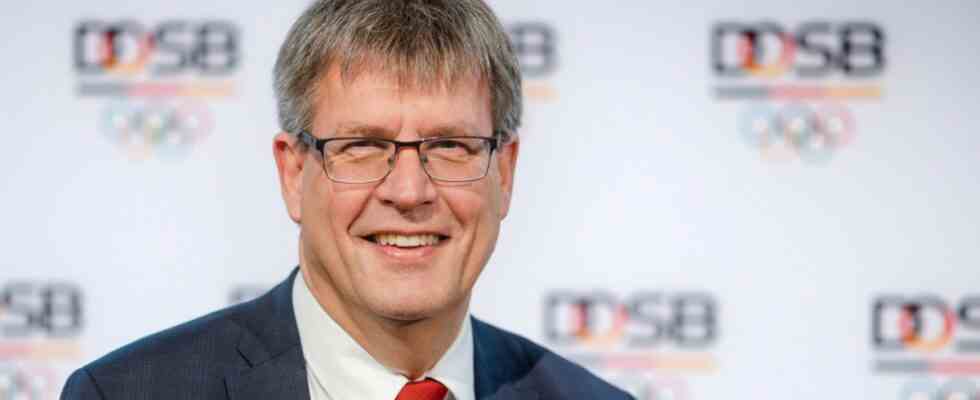So now it is available the final report on the turbulent months, which the German Olympic Sports Confederation (DOSB) went through last year under the leadership of its former President Alfons Hörmann. It is almost 50 pages long, the core message is that the actions of the old association leadership were “questionable” but not relevant under criminal law. And with that, the topic should now be closed.
It’s not that at all, on the contrary. So far, the DOSB riots were primarily an affair of the ex-boss Hörmann, who left almost a year ago. But at the latest with the publication of the report and the handling of it, they are also an affair of the new leadership around President Thomas Weikert and CEO Torsten Burmester.
The commission, consisting of the sports functionary Christa Thiel and the former BGH judge Clemens Basdorf, should help to calm the troubled German sport. All essential points, as DOSB boss Weikert said at the beginning of the year, must be worked through in such a way that “everyone can live with them”. But now there will be many participants from German sport who will not be able to live with the result.
In addition to remarkably clear and critical passages, the report itself reveals astonishing weaknesses. The responsibility of those who still hold important positions in German sport today is largely avoided. Crucial parts of the report have been blacked out, including all personal names except for those of Hörmann and the former CEO Veronika Rücker, who always acted firmly at the President’s side. The DOSB explains this with personal rights reasons, but it seems downright funny when it also promises more “transparency” as a consequence of the report.
But above all, with the report there is an enormous number in the room. More than 700,000 euros were spent on external consultants and lawyers – as a result of that anonymous open letter from spring 2021, which Hörmann accused of a “culture of fear” on behalf of DOSB employees and which ultimately led to Hörmann’s end. A particularly sensitive cost: Hörmann’s attempt to find the author, including language reports and expensive lawyers. Exactly how much the consultation cost is also blacked out. But with all due respect for the fact that in the case of such serious allegations one has the right to defend oneself – such a magnitude goes beyond the scope of any framework.
How do such expenditures arrive at the base?
But in the new DOSB now happens: almost nothing. The experts came to the conclusion that the volume was “conspicuous” and “questionable”, but one could say with every single consultation: “It wasn’t completely nonsensical.” And the new DOSB leadership manages not to even mention this exorbitant amount in its statement on the commission’s report, let alone evaluate or condemn it. That’s a pretty weird signal.
Criminal law assessments are only one thing; the other is how something like this arrives at the base of the much-vaunted sports Germany. 700,000 euros is huge in the DOSB cosmos, in which – just for orientation – the association collects around four million euros in membership fees every year and the core budget is around 20 million euros. And they are even more so when you look at the almost 90,000 grassroots clubs and the around 100 member organizations of the DOSB with their diverse financial worries.
After all the turbulence of previous years, German sport is trying to build new trust – also with a view to the umpteenth Olympic application, which it is currently working on. If one proceeds so inadequately with such central questions, it tends to come to nothing.

